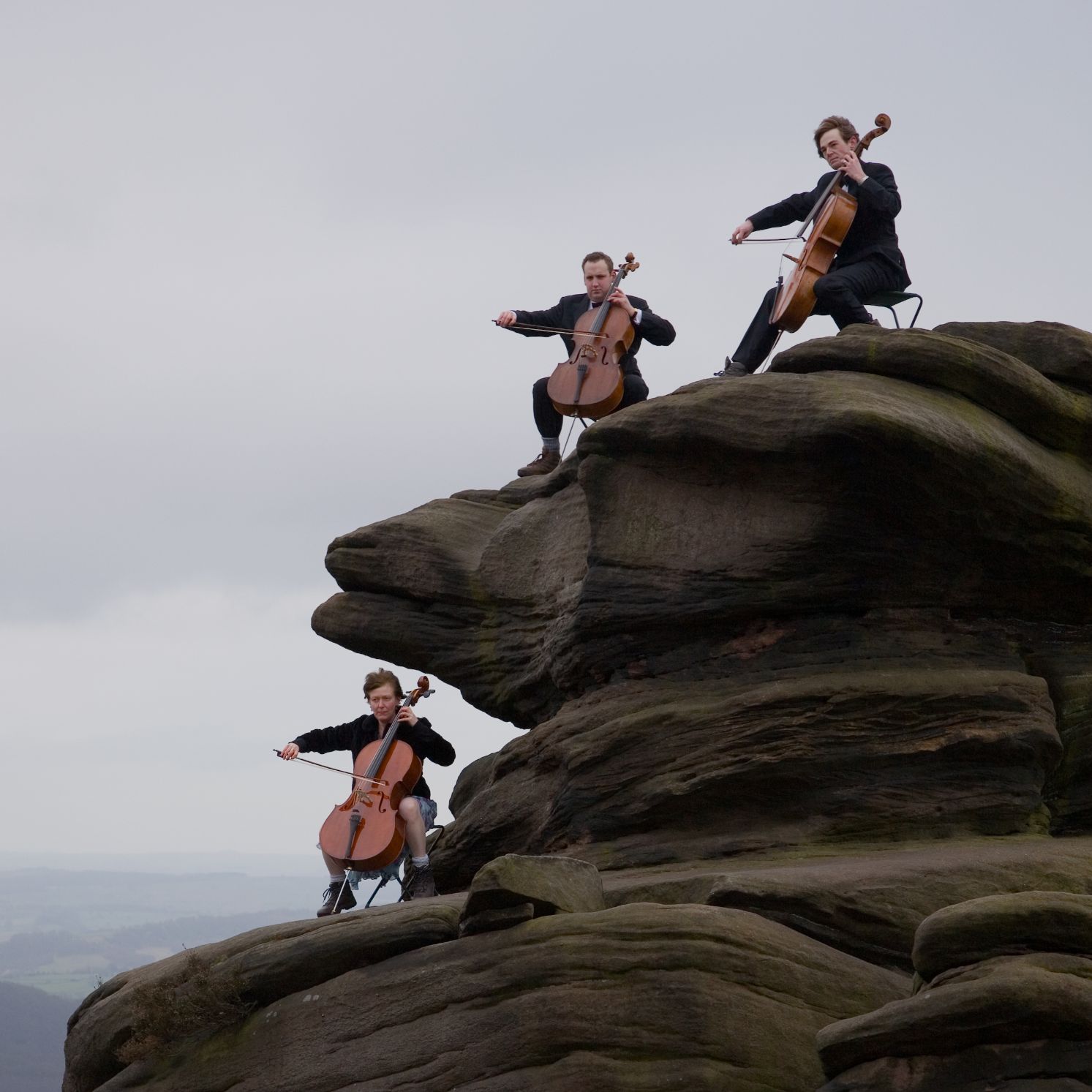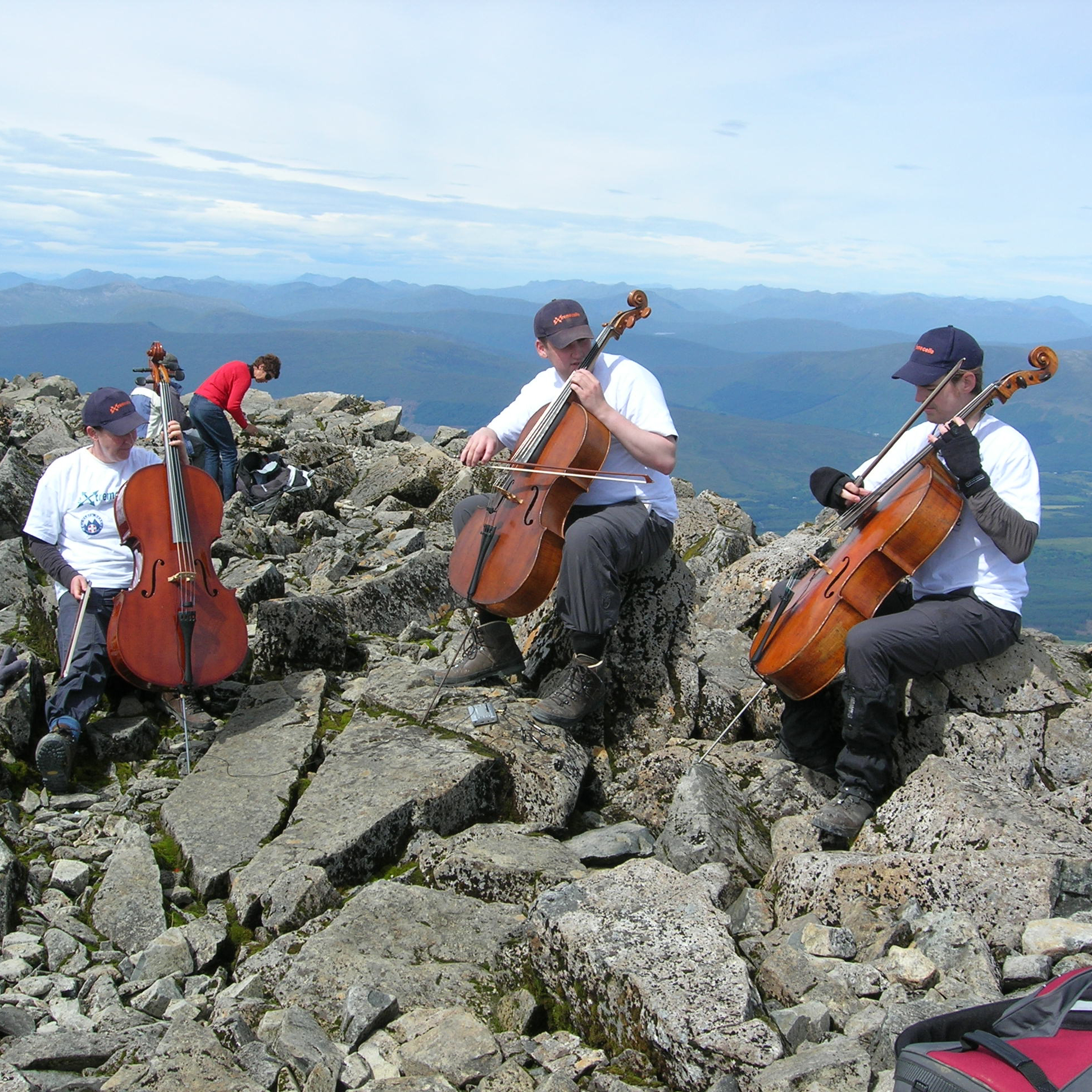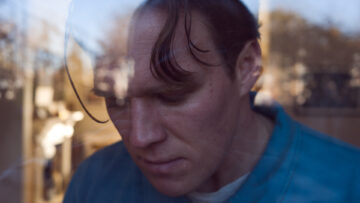
For some cellists, playing their instrument on flat, indoor ground just doesn’t cut it. Instead they scale windy peaks, risking their safety and raising thousands for charity in the process. This is Extreme Cello.
Clare Wallace still remembers the name of her music teacher. When she was a young girl living in Gloucester, Roy Peverett told her, “One day you’ll do great things with your cello.” Thanks to Extreme Cello, she has.
Exactly how Extreme Cello began is lost in the mists of time, says Jeremy Dawson, who created it with Clare and another friend called James Rees. The trio got to talking about a documentary they had all separately seen about extreme ironing – a hobby in which people iron clothes in unlikely locations like mountaintops and cliff-faces. Wouldn’t it be fun to do it with cellos, one of them said. No one takes the credit, but this suggestion sowed the seed for the strange collective they were due to form.
A few weeks after their extreme ironing chat, Clare’s daughter’s primary school in Sheffield was broken into and some of the instruments stolen. The school asked parents for innovative funding ideas. Clare, Jeremy and James (who are now 62, 45 and 41 respectively) thought that it would be a nice idea to play cello together at six different places in and around Sheffield. So they lugged their instruments around and played them at the peak of Mam Tor, a 517-metre-high hill; in Blue John Cavern; on top of the Arts Tower, then the tallest building in Sheffield; at Glindelford station; at Padley Gorge; and in the Winter Garden. They crammed this all into one day in May 2003, managing to raise £1,800, in a stunt they assumed would be a one-off.
When they met again, however, they wondered: could they do more extreme celloing together?

Playing atop Ben Nevis’s peak during the Four Peaks Challenge in 2008
Clare had always wanted to play the trumpet when she was younger. But people at her school told her, “You can’t play the trumpet, you’re a girl.” Casting around for alternatives, she decided upon the cello. “I didn’t know anything about the cello,” she says, “but I thought, well, it’s a big instrument so it’ll probably make a loud noise like a trumpet. That’s why I took it up – because I thought it was big and powerful, and I wanted to be big and powerful. I was a massive tomboy.”
At the inception of Extreme Cello the trio knew one another because they were members of a chamber choir. Like Clare, James had been playing the cello since the age of about eight but after university, when his instrument stood unused in its case, he would have described himself as a “lapsed cellist”.
Their next big stunt waited until 2005, when they raised funds for Sheffield Cathedral’s choir by walking from Manchester Cathedral to Sheffield Cathedral – a distance of about 45 miles – while stopping to play choral music on their cellos. “There is more life in this; this has got legs,” Jeremy remembers them thinking after they (just) managed to complete the walk in 24 hours and raised thousands of pounds.

They continued to stage a fundraising stunt every year. Over just nine days in 2008 they achieved the Four Peaks Challenge, climbing the tallest mountains in Scotland, Ireland, Wales and England. In Ireland, where they were due to scale Carrauntoohill, which involved going through a bog and up a ridge, their local mountaineer guides said, “About three weeks ago, someone got blown off here and killed.” Extreme Cello survived, however, and played Climb Every Mountain at the top, as is their custom.
The weight of a cello doesn’t make the ascent particularly difficult, says Jeremy. What does is the shape and bulk of the instrument. “Because the neck of the cello sticks out above your head, if it is windy that can blow you off course a bit more than you would normally expect to.” When they reached the top of Ben Nevis, there was no wind, only sun, as the three of them played their medley into the open air. “I would just say you feel on top of the world,” says Clare. “And when you’ve got all the world at your feet…although the world can’t hear you, you’re still bringing music to the world.”
Climbing the land’s tallest mountains paled into insignificance, however, compared with competing in the London Marathon in 2012. Running 26.2 miles is never easy but it’s all the harder when you’re lugging a cello around. When I raise the subject, the cellists still sound traumatised by the experience. “It was a nightmare,” says Clare. “I can’t describe it, really.”
Training was gruelling. Clare did hers in the Peak District in the winter, remembering that one day there was ice underfoot. She would train running up to 10 miles without the cello, then start again with the cello and train with that, starting at around 5km. Jeremy remembers his schedule: “I was running in the gym in the mid-week mornings and then on the weekend going into the countryside and running with the cello – which prompted quite a lot of strange looks.”
The hardest part of the marathon was the regular breaks the group took in order to play their instruments: it is always harder to run after you’ve stopped. A case maker had manufactured bespoke containers for the trio, putting padding in all the right places. This didn’t stop Clare compressing a vertebra in her spine. Ironically, it was a spinal cord charity Aspire for whom the group were raising money (they made £14,000 in the end). Agonisingly, a TV crew pulled Jeremy aside when he was a mile off the finish line. He thought it would be a 30-second chat; it turned into a five-minute waiting game.
Ultimately, of course, Extreme Cello are glad they ran the marathon (even if they haven’t attempted it since). They see great value in the work they’ve done, not just because of the £50,000 they’ve raised since 2003. “I think it’s helped us all individually because we’re all to some extent from quite dysfunctional families in different ways,” says Clare “And I think that’s something that’s kind of united us.”
And more than that, the trio’s stunts have an important message. “Music is for everyone,” says James. “The fact that we can bring a smile to so many faces, especially children, by performing music in unusual locations makes all of the effort and planning worthwhile. Classical music should not be elitist or confined to traditional venues.”
The future is uncertain for Extreme Cello but they may do something this summer, and next year is their 20th anniversary, so another national tour in celebration is a possibility. Clare bursts with pride when she says, “It’s a privilege to be able to play music, and to bring music to the world.”




